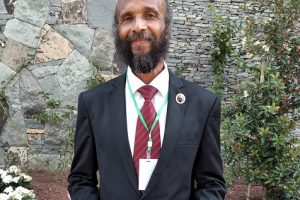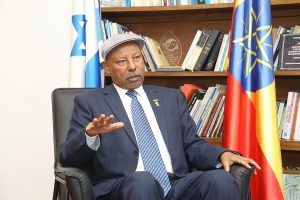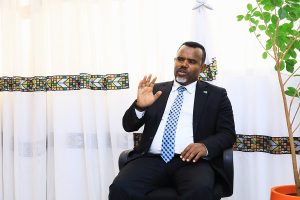
Ambassador Barlybay Sadykov is a seasoned diplomat with over three decades of experience in international relations, Ambassador Sadykov is fluent in English, Urdu, Russian, and Kazakh.
Ambassador Sadykov began his diplomatic career in 1993, serving in various capacities within the Ministry of Foreign Affairs (MFA) of Kazakhstan, including as Attaché, and Third, Second, and First Secretary in the Europe and Americas Division. From 1996 to 2000, he was appointed Second Secretary at the Embassy of Kazakhstan to the Italian Republic, concurrently accredited to Greece and Malta.
Between 2000 and 2003, he held senior positions within the MFA, including Head of the Americas Desk in the Europe and Americas Department and Head of the International Organizations Division in the Department of Multilateral Cooperation. He later served abroad as First Secretary at the Permanent Mission of Kazakhstan to the United Nations Office in Geneva (2003–2005), and subsequently as Deputy Permanent Representative to the United Nations in New York (2005–2008).
From 2008 to 2012, Ambassador Sadykov served as Director of the Department of Multilateral Cooperation at the MFA. He was later appointed Ambassador-at-Large (2013–2015), before returning to New York as Deputy Permanent Representative (2015–2016) and then First Deputy Permanent Representative of Kazakhstan to the United Nations (2016–2018).
His ambassadorial assignments include service as Ambassador Extraordinary and Plenipotentiary to the Islamic Republic of Pakistan, with concurrent accreditation to the People’s Republic of Bangladesh (2018–2019). Since July 2019, he has been serving as Ambassador Extraordinary and Plenipotentiary of the Republic of Kazakhstan to the Federal Democratic Republic of Ethiopia and to the Republic of Kenya, as well as Permanent Representative to the African Union and the United Nations Office in Nairobi.
It was an honor for The Ethiopian Herald to sit down with Ambassador Sadykov for an in-depth discussion on the growing ties between Ethiopia and Kazakhstan. We invite our readers to explore his insightful reflections and forward-looking perspectives.
Mr. Ambassador, you have been the representative of Kazakhstan in Ethiopia since 2019. How would you characterize the development of relations between our countries?
Although diplomatic relations between Kazakhstan and Ethiopia were only established in 2011, cooperation between our two countries has developed dynamically and successfully. In September 2013, as the Special Representative of the Minister of Foreign Affairs of the Republic of Kazakhstan, I had the opportunity to visit Addis Ababa and meet with then-Minister of Foreign Affairs, H.E. Mr. Tedros Adhanom Ghebreyesus.
During our meeting, both sides expressed a strong interest in expanding bilateral cooperation. As a result, in 2014, Kazakhstan opened its Embassy in Addis Ababa. The following year, in 2015, the Minister of Foreign Affairs of Kazakhstan, H.E. Mr. Erlan Idrissov, visited Ethiopia, where we agreed on a number of activities to strengthen our bilateral ties.
I would especially like to highlight our close cooperation as non-permanent members of the UN Security Council during 2017–2018. In May 2018, H.E. Mr. Kairat Umarov, then Kazakhstan’s Ambassador and Chairman of the UN Security Council’s Somalia and Eritrea Sanctions Committee, led a UNSC delegation to countries in the region. He met with H.E. Prime Minister Abiy Ahmed and discussed prospects for cooperation with the Security Council and ways to ensure regional stability.
In 2023, the former President of Ethiopia, H.E. Dr. Mulatu Teshome, visited Kazakhstan to participate in the Astana International Forum. He served as the keynote speaker in a special session focused on Africa’s role in international politics and economic development.
State Minister H.E. Mesganu Arga also visited Astana, where our foreign ministries held political consultations that resulted in the adoption of a Roadmap for Cooperation across political, economic, and cultural sectors.
A Memorandum of Understanding has also been signed between the aviation authorities of Kazakhstan and Ethiopia, opening the door for direct passenger and cargo air transportation between our countries.
Parliamentary relations are also gaining momentum. Two inter-parliamentary meetings have been held to date, and in January 2025, a delegation from the Parliament of the Republic of Kazakhstan participated in the Second Congress of the Prosperity Party.
Overall, in recent years, we have succeeded in elevating our relations to a new level, laying a strong foundation for continued collaboration. It is worth noting that Kazakhstan is the only country in Central Asia to have opened an embassy in Ethiopia.
What factors motivate the two countries to strengthen their political partnership?
There are several key factors that drive the partnership between Kazakhstan and Ethiopia. Allow me to highlight a few.
First and foremost is the similarity in our countries’ approaches to pressing international and regional issues. I had the privilege of working with colleagues from the Permanent Mission of Ethiopia to the United Nations in New York during our simultaneous membership as non-permanent members of the UN Security Council in 2017–2018. On many agenda items, our delegations presented similar positions, characterized by a balanced approach, a commitment to consensus, and a strong preference for resolving conflicts through dialogue.
Both Kazakhstan and Ethiopia support a multilateral international order based on the principles of the UN Charter and international law. In today’s climate of geopolitical tension, our two nations—as influential middle powers—can jointly contribute to the promotion of peace and global stability.
Kazakhstan, as a key actor in Central Asia, and Ethiopia, as a leading state in the Horn of Africa, play critical roles in maintaining stability and security within their respective regions. Additionally, we see promising opportunities for cooperation within the BRICS framework. Kazakhstan, as a BRICS partner country, is keen to expand its engagement with Ethiopia under this platform.
Our countries also maintain strong cooperation within international organizations, particularly the United Nations. We are especially grateful to the Ethiopian side for co-sponsoring the UN General Assembly resolution initiated by Kazakhstan on the establishment of the UN Regional Centre for Sustainable Development Goals in Almaty, which will serve Central Asia and Afghanistan.
How are trade relations developing between the two countries, and what are the prospects for their future growth?
It must be acknowledged that the current level of trade and economic cooperation between Kazakhstan and Ethiopia does not yet reflect the vast potential of both countries. Kazakhstan maintains trade relations with over 140 countries worldwide, with an annual trade volume exceeding 140 billion USD. The country is well-positioned to expand cooperation in the export and import of goods and services, including oil and gas, products from the chemical and metallurgical industries, machinery, fertilizers, and more.
Additionally, Kazakhstan is keen to share its expertise in information technology and economic digitalization. We invite the Ethiopian side to explore Kazakhstan’s e-government system and other advanced digital platforms as models for technological development.
To this end, the Embassy of Kazakhstan regularly organizes meetings and engagement events with the Ethiopian business community. These platforms are intended to promote awareness and unlock the full potential for bilateral trade and investment.
Currently, several Ethiopian companies have expressed interest in establishing joint ventures for coffee processing in Kazakhstan, with the strategic aim of exporting value-added products to Central Asia and other international markets.
Kazakhstan is a landlocked country. What economic impact does this have, and what lessons can be drawn from your experience in overcoming such challenges?
Kazakhstan is the world’s largest landlocked country. However, rather than being hindered by this geographical reality, Kazakhstan has transformed its landlocked status into a strategic advantage through the development of a comprehensive, multi-tiered system of transport and logistics corridors.
A large-scale infrastructure modernization effort has enabled Kazakhstan to become a critical connector between major global regions—linking China with Europe, and Russia with Turkey, the Middle East, and South Asia. The country has established multimodal transport networks, including extensive rail, road, sea, air, and pipeline infrastructure.
Kazakhstan continues to develop its ports along the Caspian Sea and has invested in port terminals abroad, including in Azerbaijan, Georgia, Lithuania, China, Iran, and Russia. This proactive strategy reflects Kazakhstan’s commitment to diversifying trade routes and reducing dependency on any single corridor. One noteworthy initiative includes the exploration of the Arctic trade route through the Arctic Ocean.
Kazakhstan also participates in the Quadrilateral Traffic Transit Agreement (QTTA), which provides access to Pakistan’s Gwadar Port on the Arabian Sea. In addition, a strategic partnership with Abu Dhabi Ports Group (ADP) led to the formation of a joint venture, Caspian Integrated Maritime Solutions (CIMS), to facilitate the development of alternative maritime export routes for Kazakh goods.
On the domestic front, Kazakhstan has invested heavily in its railway and road networks. Approximately 2,700 kilometers of new railways have been constructed, alongside the development and modernization of thousands of kilometers of highways connecting Kazakhstan with key regional hubs.
Kazakhstan has also emerged as a significant air transit hub. Its airspace hosts about 90 routes, totaling 83,876 kilometers—including strategically vital transpolar routes connecting North America with Asia and Europe.
Equally important is the country’s pipeline infrastructure. Today, Kazakhstan operates over 10,000 kilometers of oil and gas pipelines, further solidifying its role as an energy and transit powerhouse.
Over the past three decades, Kazakhstan has evolved from a nation isolated from major global trade routes into one of Eurasia’s key logistical centers. It now serves as a critical land bridge, connecting China with Europe, and South Asia with Russia and the Middle East via an integrated network of transport corridors.
Kazakhstan’s success demonstrates that being landlocked is not a permanent disadvantage, but rather a challenge that—with strategic planning and international cooperation—can be transformed into a competitive edge.
What major international events will be hosted by Kazakhstan in 2025, and is Ethiopia expected to participate?
In 2025, Kazakhstan will host two major international events, reinforcing its role as a center for global dialogue in the areas of economics, investment, and interfaith harmony.
The Astana International Forum (AIF) will take place in May 29–30, serving as a platform for cross-border dialogue on international diplomacy and cooperation amid global turbulence and polarization. The Forum will bring together heads of state, business leaders, academics, and policy experts to address pressing global challenges, including sustainable development, climate change, digital transformation, and geopolitical stability.
Another landmark event will be the Congress of Leaders of World and Traditional Religions, scheduled for September 17–18 in Astana. This unique platform brings together spiritual leaders of various faiths, as well as senior government and civil society representatives, to promote tolerance, interfaith dialogue, and peaceful coexistence.
Kazakhstan has officially invited high-level Ethiopian representatives to both events, and we are hopeful that Ethiopia will actively participate in these important global gatherings.
In addition, Kazakhstan has recently commemorated the 80th anniversary of Victory Day in the Great Patriotic War on May 9, 2025. A military parade held in Astana on May 7, and President Kassym-Jomart Tokayev participated in a commemorative parade on Red Square in Moscow. Over 1.35 million Kazakhstani citizens fought in World War II, with more than 600,000 making the ultimate sacrifice. Kazakhstan honors their memory and remains a staunch advocate of peace and international solidarity.
On this occasion, I would also like to extend my heartfelt congratulations to the Government and people of Ethiopia on Patriots’ Day. The courage and dedication of the Ethiopian people—who were among the first to rise up against fascism and colonialism—stand as a powerful example in the global struggle for independence and justice.
During your time in Ethiopia, how would you describe the country’s social and cultural diversity? Are there any cultural similarities between Kazakhstan and Ethiopia that stand out to you?
Over the past five years, I have had the privilege of visiting nearly every region of Ethiopia. My recent visit to Axum was particularly memorable; I was captivated by its ancient collection of religious manuscripts and imperial crowns. In Mekelle, I had the opportunity to visit the Al-Nejashi Mosque, named in honor of the Abyssinian Christian King Negash, who famously welcomed the first Muslim followers of Prophet Mohammed. I also explored Dire Dawa and the ancient walled city of Harar, recognized as one of Islam’s holiest cities.
In Bahir Dar, I enjoyed a serene boat trip on Lake Tana and marveled at the majesty of the Blue Nile Falls—truly a natural gem of Africa. In Arba Minch, I drank from a mountain spring and took in breathtaking views of the lakes and highlands. I also had the honor of witnessing a coming-of-age ceremony celebrated by youth from Ethiopia’s southern ethnic communities—remarkable in their commitment to preserving traditional customs.
Ethiopia is a nation of extraordinary history, deep-rooted culture, and rich traditions. Despite the geographical distance, Kazakhstan and Ethiopia share striking cultural parallels. Both are multi-ethnic nations with a wide array of languages and cultural identities that enhance their spiritual and societal fabric. Religious tolerance is another shared value that unites our peoples.
These shared characteristics reveal that, despite the distance between us, our nations are bound by common values. In both Kazakhstan and Ethiopia, culture is not just a legacy—it is a living, evolving way of life, passed down through generations. I firmly believe that this cultural kinship forms a strong foundation for mutual understanding and enduring friendship between our two countries.
Ethiopia’s capital is undergoing a remarkable transformation through the corridor development initiative. How do you assess this project and its significance?
The Addis Ababa Corridor Development Initiative is commendable from both an urban planning and socio-economic perspective. The project aims to create green, safe, and modern urban environments while enhancing pedestrian and transport infrastructure, beautifying public spaces, and establishing cultural and tourism zones.
Addis Ababa is flourishing, thanks in part to the Beautifying Sheger project. Two flagship achievements—Unity Park and Entoto Park—not only enrich the urban experience but also stimulate economic growth, generate employment, and foster national pride. We wholeheartedly commend the visionary leadership behind these efforts to transform the capital into a more vibrant, livable, and welcoming city.
Despite facing significant challenges, including internal conflict, the Ethiopian government continues to lead large-scale projects like the corridor development. What does this reveal about the country’s governance and priorities?
Since launching its reform agenda in 2018 under the leadership of Prime Minister Abiy Ahmed, the Ethiopian government has made substantial progress in advancing socio-economic development and fostering national unity.
The establishment of the National Dialogue Commission, the involvement of the Council of Elders, and the participation of religious and regional leaders reflect a strong commitment to peaceful conflict resolution that respects both traditional and modern mechanisms of governance. These initiatives show an appreciation for Ethiopia’s cultural diversity and emphasize the importance of inclusive, community-driven state-building.
I am hopeful that the Ethiopian Government’s ongoing efforts will yield lasting solutions to the challenges it faces and will serve as a model for harmonizing tradition and progress in national governance.
Given Addis Ababa’s growing status as a diplomatic hub, how does the corridor development initiative contribute to the city’s international influence and long-term development?
Addis Ababa’s international stature continues to rise impressively. The number of foreign embassies has grown from 123 in 2019 to 137 today, underscoring the city’s importance as a diplomatic capital on the African continent.
Already home to the African Union headquarters and a focal point for regional negotiations, Addis Ababa has tremendous potential to further consolidate its diplomatic influence.
Yet the benefits of corridor development extend beyond diplomacy. These initiatives serve as powerful engines of economic growth, sustainable development, and regional integration. They also help strengthen Ethiopia’s trade and infrastructure links with neighboring countries, contributing to broader regional prosperity.
As someone who has witnessed Ethiopia’s tremendous progress over the past five years, I extend my sincerest congratulations to the Government and people of Ethiopia for these impressive achievements. I wish the friendly people of Ethiopia continued success, peace, and prosperity.
Thank you so much for taking time to speak with The Ethiopian Herald
Thank you
BY GIRMACHEW GASHAW
THE ETHIOPIAN HERALD SATURDAY 10 MAY 2025





